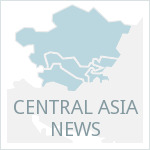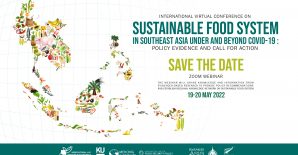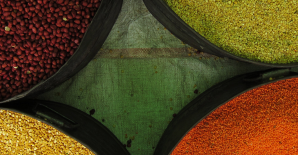News
Tajikistan reviews sustainable development, environmental performance
(September 14) Tajikistan faces challenges in terms of deforestation, contamination of food and water, and air pollution from road transport, according to an environmental performance review conducted by the UN Economic Commission for Europe (UNECE). Among other factors, the UNECE review assessed attention to environmental concerns in a variety of sectors including agriculture, industry, energy, transport, housing, health, and disaster risk management. – IISD
New ADB-Kazakhstan strategy to support sustainable growth, economic diversification
(September 18) The Asian Development Bank is endorsing a new country partnership strategy with Kazakhstan, which will entail over $3 billion in assistance over the next five years. The strategy will focus on helping Kazakhstan diversify its economy, achieve inclusive development, and promote sustainable growth. As part of its broader goals, the ADB strategy will focus on transforming Kazakhstan’s agricultural sector into a viable economic growth engine. – ADB
Kazakhstan president travels to Uzbekistan and Turkmenistan
(September 18) Kazakh president Nursultan Nazarbayev traveled to Uzbekistan and Turkmenistan on September 16 and 17. The two heads of state signed a series of cooperation agreements related to the military, technical, energy, and industrial sectors. Transit and trade links between Kazakhstan and Uzbekistan have flourished in the past year, resulting in a 35 percent increase in bilateral trade in 2017. Following the meeting, Nazarbayev was present at the opening ceremony for the 2017 Asian Indoor and Martial Arts Games in Turkmenistan, marking a rare occasion in which the normally inaccessible country is hosting a public international event. – Astana Times, AzerNews, AKIPress, Washington Post
Analysis & Other Information
Official currency trading hints at size of black market in Uzbekistan
(September 16) Uzbek citizens exchanged around $300 million following the government’s September 5 decision make the national currency officially convertible. This activity is providing some insights into the size and scale of the black market, which had previously been the only means for the general public to exchange foreign currency. At the moment, Uzbek citizens are only allowed to sell foreign currency at banks but the authorities are planning to gradually introduce foreign currency purchases in the next few months, according to central bank first deputy chairman Timur Ishmetov. – Eurasianet
Strengthening infrastructure in Tajikistan for disaster and climate resilience
(September 13) World Bank is steering a $50 million project to strengthen Tajikistan’s critical infrastructure against natural disasters and climate change-related problems. In addition to reconstructing and upgrading physical structures in the country’s topographically-challenging regions, the project will also fund improvements in the national disaster management and emergency communication systems. – World Bank
Eurasia's latest economic reboot can be found in Uzbekistan
(September 14) This article published by Forbes magazine analyzes recent developments taking place in Uzbekistan. Commentators in the article largely echo the prevailing perception that the current Uzbek administration is genuinely interested in executing widespread reforms and improving relations with neighbors and partners further abroad. – Forbes
Publications & Reports
Post-socialist transition and intergenerational educational mobility in Kyrgyzstan
Bruck, D. Esenaliev (2017). Economics of Transition.
Reproductive management and performance in smallholder dairy farms in Tajikistan
Celander (2017). Swedish University of Agricultural Sciences.
Remittances and labor supply of the left-behind youth: evidence from Kyrgyzstan
Davalos, K. Karymshakov, B. Sulaimanovam, R. Abdieva (2017). Asian and Pacific Migration Journal.
The current status and future of Central Asia's fish and fisheries: confronting a wicked problem
Graham, S. Pueppke, T. Uderbayev (2017). Water, 2017, 9(9).
"We sit and wait": migration, mobility, and temporality in Guliston, southern Tajikistan
Ibanez-Tirado (2017). Sussex University (UK). Current Sociology.
The water-energy-food nexus in Kazakhstan: challenges and opportunities
M. Karatayev, P. Rivotti, Z. Mourao, D. Konadu, N. Shah, M. Clarke (2017). Energy Procedia, 125, pp. 63-70.
Events & Calls for Papers
Annual Eurasian Food Security Conference
Annual conference. October 3-5, 2017 in Dushanbe, Tajikistan. Organized by the Eurasian Center for Food Security at Lomonosov Moscow State University (ECFS), World Bank Group, International Food Policy Research Institute (IFPRI), and International Center for Agricultural Research in the Dry Areas (ICARDA). Deadline to register for the conference was September 17, 2017. Please contact Anna Buyvolova (abuyvolova@worldbank.org) or Yulia Mitusova (ymitusova@worldbank.org) for additional details.
Life in Kyrgyzstan
Annual conference. October 12-13, 2017 in Bishkek, Kyrgyzstan. Organized by Institute of Public Policy and Administration of the University of Central Asia (UCA), Stockholm International Peace Research Institute (SIPRI), Leibniz Institute of Vegetable and Ornamental Crops (IGZ), International Food Policy Research Institute (IFPRI), International Security and Development Center (ISDC), and the Food and Agriculture Organization of the United Nations (FAO). Deadline to submit papers was June 15, 2017. Deadline to register was September 15, 2017. Please contact likconference2017@gmail.com for additional details.
Archived issues of the news digest can be found on the Central Asia page under the ReSAKSS Asia website: http://resakss-asia.org/regions/central-asia. A link to the newsletter can be found under Blog Posts.
The articles included in this news digest have been generated from online sources. Any opinions stated herein are not representative of, or endorsed by, the International Food Policy Research Institute or its partners.



